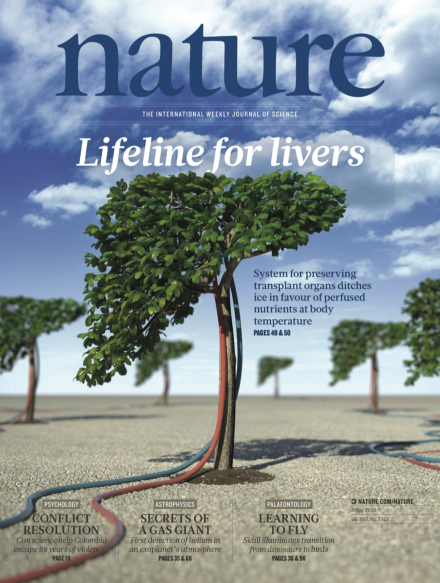Volume 557 Issue 7703, 3 May 2018
This Week
-
Editorial
-
-
Announcement: stem-cell policy
Collection:
-
-
World View
-
Research Highlights
-
Seven Days
News in Focus
-
News
-
Features
Comment
-
Comment
-
Books and Arts
-
Correspondence
Technology
-
Toolbox
Careers
-
Features
-
Q&A
Futures
Research
-
News & Views
-
Articles
-
Letters

